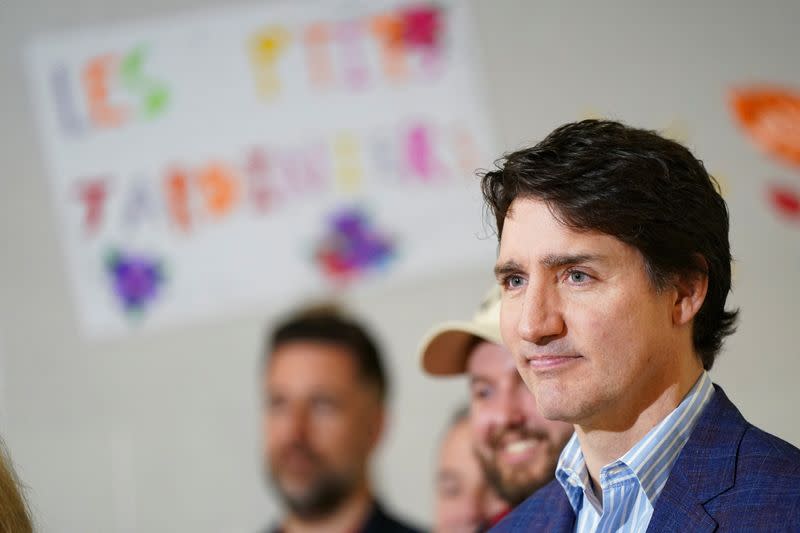US senators urge Canada to increase defense spending to NATO guideline

WASHINGTON (Reuters) -U.S. Democratic and Republican senators signed a letter to Canadian Prime Minister Justin Trudeau on Thursday urging his government to increase its defense spending to the 2% of gross domestic product agreed to by NATO allies in 2023.
The letter from the 23 senators called Canada a valued ally that has contributed to NATO operations around the world but added that the alliance "now faces one of the most severe threat landscapes in its history."
The letter urged all NATO allies and Canada specifically to uphold their NATO commitment and accelerate efforts to reach the 2% defense spending target.
Sent ahead of a NATO summit in July in Washington, the letter writers were led by Democratic Senator Jeanne Shaheen and Republican Senator Thom Tillis, the co-chairs of the U.S. Senate NATO Observers Group.
Canada's Defence Minister Bill Blair, asked about the letter on Thursday, pointed to a policy update announced in April in which the Trudeau government pledged billions more for the armed forces and said military spending was set to hit 1.76% of GDP by 2030, up from the current 1.4%.
"We recently came up with a defense policy that I think applies a very significant and necessary focus on continental defense, which I would share with the concerned senators," Blair told reporters in Ottawa.
The failure of many of NATO's 31 members to meet a defense spending target of at least 2% of gross domestic product has long been a source of tension with the United States, whose armed forces form the core of the alliance's military power. NATO estimates have shown that only 11 members are spending at the target level.
Canadian government officials have previously said there was no target date to hit the 2% threshold.
Blair said Canada would inevitably get to the 2% mark as the government works on bolstering defense capabilities and its "timeline will be based on the requirements of our Armed Forces, and we do that in consultation very closely with our Allies and then determine what's available on the market."
(Reporting by Patricia Zengerle in Washington, additional reporting by Ismail Shakil in Ottawa; Editing by Cynthia Osterman and Michael Perry)


